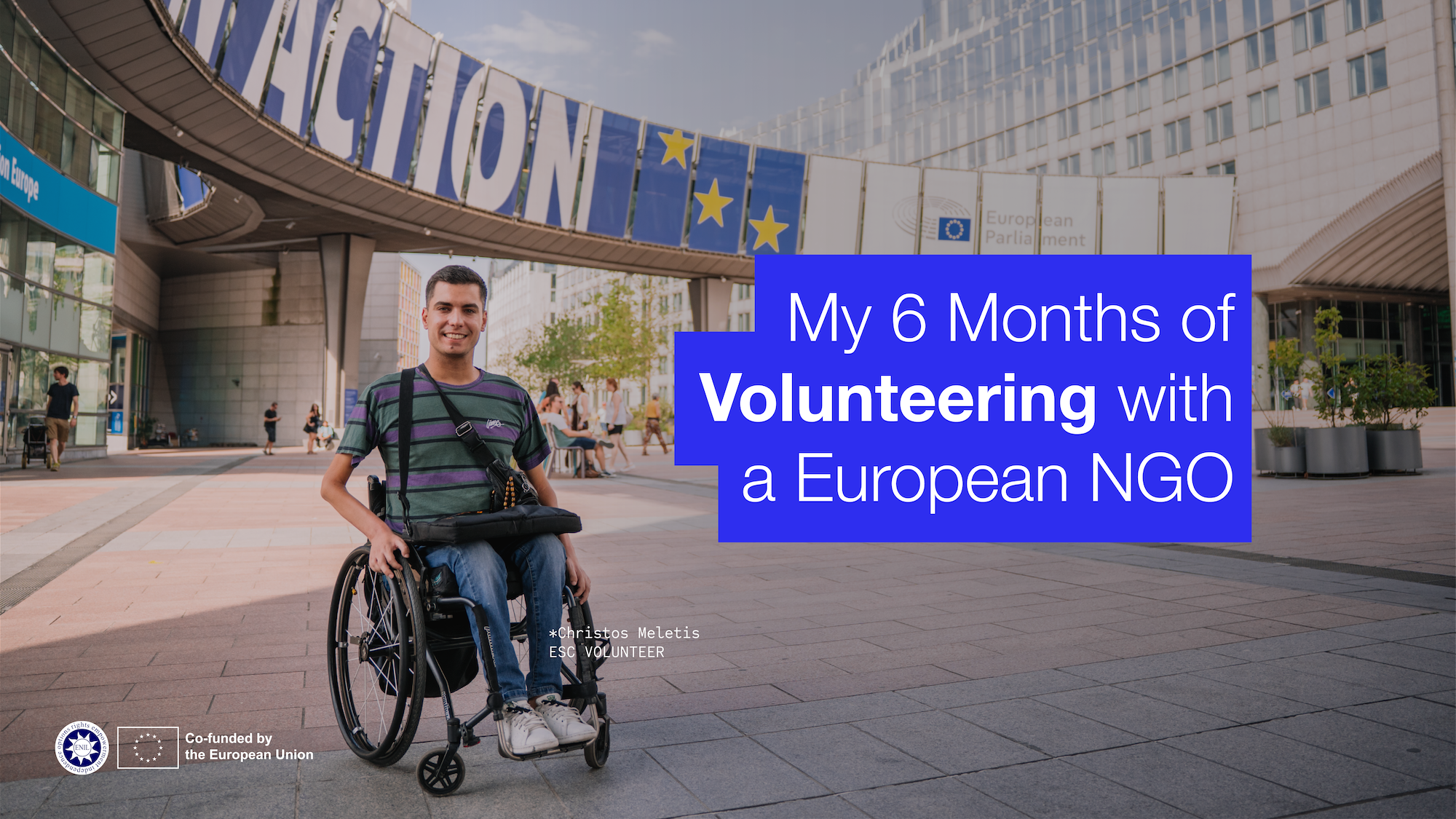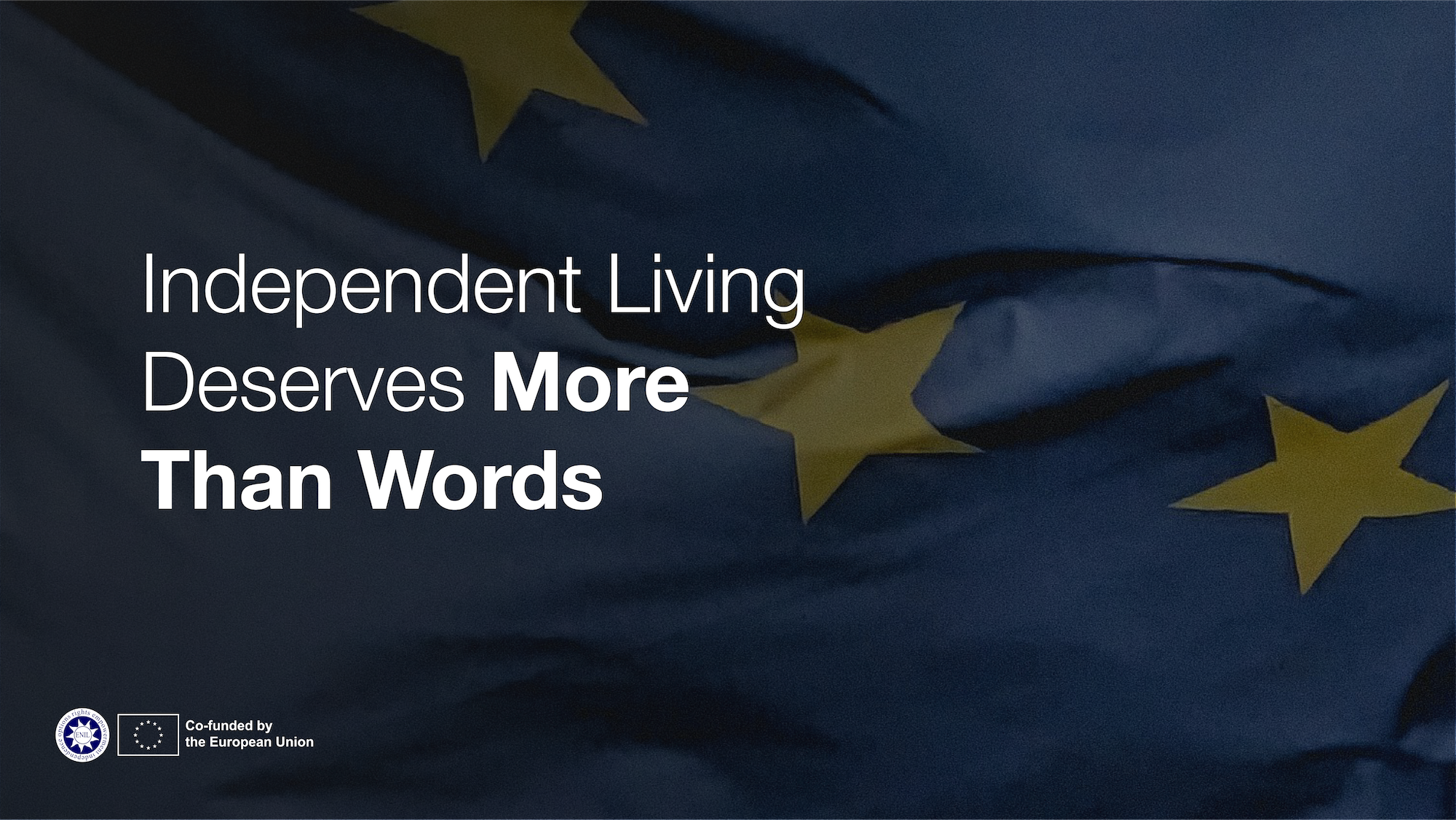My pathway to disability research was not a straightforward one but it’s certainly an interesting one. Originally, I had studied international economics at the University of Novi Sad, Serbia, and obtained a master’s degree there but I’ve never seen myself as the practitioner in the field of finance. What’s more, I didn’t exhibit much interest in it, though I fared well in my studies.
During my studies, I got engaged in civil society in the youth movement in Serbia at the time when organized youth movement was booming in Serbia with a proliferation of youth civil society organizations leading to first-ever National Youth Strategy, Law on Youth in Serbia, the professionalization of youth work and many youth-related projects and learning opportunities for young people. There I got introduced to beauties, advantages and challenges of non-formal education, training facilitation, project design, and grant writing among the rest.
And that point I was not actively involved in the disability movement and didn’t know much about disability rights. While approaching the end of my master studies in 2011 my friend sent me an interesting job ad for the position of Disability Rights Promotion International Regional Officer for Eastern Europe. It was the start of the global collaborative project aimed to support disability movement in monitoring disability rights through holistic participatory monitoring methodology. You can read more about DRPI here.
It seemed like a long-shot for me as I believed they would hire somebody more experienced but I decided to try anyway. I was invited for the interview and Prof. Marcia Rioux from disability studies from York University, Toronto who was co-directing the DRPI project came to Belgrade, Serbia to interview the candidates personally. What happened after is that I got selected for the position and started working for DRPI as the Regional Officer for Europe based in Belgrade, Serbia. I was surprised that I got selected at my age of 24 without much experience but later I realized that it was Marcia’s preference to hire young people rather than renowned experts in the field and invest in building their capacities as she regarded DRPI as an emancipatory platform for disability movement. Marcia Rioux was the co-director of DRPI along with Bengt Lindqvist, renowned disability rights advocate and first UN Special Rapporteur on Disability (sadly deceased in 2016). I learned about disability rights and the social model of disability from them and every year of work with them and other DRPI colleagues was tremendous learning opportunity and pleasure. Marcia and Bengt always treated all of their staff and colleagues with the utmost respect and treated us all as equals being incredibly supportive of our ideas regardless of differences in knowledge and experience.
DRPI project was set to design a holistic participatory methodology of disability rights monitoring and was delivering capacity building for local DPOs to apply the methodology in the field and monitor their rights by themselves. In Eastern Europe, we supported DPOs through country monitoring projects in Serbia, Bosnia and Herzegovina, North Macedonia, Montenegro, and Moldova and globally we supported over 40 country monitoring projects in all regions of the world. I co-authored several monitoring reports including country monitoring report for Serbia, the report on political participation of disabled people, and the report on the rights of people living with HIV in Serbia all based on DRPI human rights monitoring methodology and available in English. Whole DRPI monitoring methodology and capacity building programme along with monitoring tools are available online for the free use of DPOs and can be accessed here.
Along with DRPI colleagues I published and contributed several articles or book chapters for academic publications based on our work on disability rights monitoring including article on monitoring the social services for persons with disabilities, book chapter “Reinventing Activism: Evidence-based Participatory Monitoring as a Tool for Social Change” available in the recently published The Routledge Handbook on Disability Activism, book chapter “Disability Research in the Global South: Working from a Local Approach” available in the Critical Handbook “Disability in the Global South”, DRPI’s publication “DRPI The People’s Indicators: Evidence-Based Participatory Indicators – Measuring Progressive Realization”.
Later in 2014, I joined as participant to ENIL’s study session for young disabled people from all around Europe and met there ENIL’s young disability activists who shared the idea to set up the ENIL’s Youth Network as a pan-European network which would gather young disabled people. Soon after I joined the initial Board of ENIL Youth Network and through ENIL I learned from peers and experienced activists like Zara Todd and Miro Griffiths what it means to politically define as Disabled based on not only the common experience of societal oppression and different forms of barriers but of the feeling of pride of shared experience of diversity recognizing the potential of disability to enrich our lives in many ways.
After the end of the last phase of DRPI project in 2016, I found myself on a crossroad and realized that if I want to continue working in the field of human rights and disability rights specifically, I’d need more formal education in the area so decided to apply for the scholarship of the Central European University for master studies in human rights law. I managed to get it and there I wrote my thesis on the role of EU in supporting the deinstitutionalization processes critically exploring the outcomes of EU funded projects in Serbia and Croatia. The thesis is available here.
Just upon my return to Serbia, the opportunity had arisen to join the UN Human Rights Team in Serbia and coordinate the joint UN project “Autonomy, Voice and Participation of Persons with Disabilities in Serbia” (2018 – 2020) focusing on the legal capacity regime reform, rights of women with disabilities and employment of persons with disabilities. The project aimed to establish an ongoing partnership between UN agencies of the UN Country Team in Serbia and Serbian Government and DPOs and other civil society organizations to work together on systemic changes in the above mentioned areas.
Last year, I got an amazing opportunity to join academia at the Centre for Disability Studies of the University of Leeds, on the position of Early-Stage Researcher as part of the Disability Advocacy Research in Europe (DARE) project funded by EU’s Marie-Sklodowska Curie scheme and embark on the PhD journey. The project gathers 14 early-stage researchers, each of us working on a specific topic within disability studies, mine focusing on disabled children’s participation in healthcare decision-making. I am based in the School of Sociology and Social Policy and am combining a sociological and legal perspective in my research. Sociology is a new field for me but certainly, a fascinating one complementing my knowledge and allowing me to build on it while learning from many renowned disability studies scholars in Leeds and being supervised by some of the ENIL’s allies: Dr. Angharad Beckett, Prof. Mark Priestley, and Dr. Oliver Lewis.
The next publication I’m preparing is the book chapter on disabled children’s participation in healthcare decision-making based on my research and will be published next year as part of the Routledge Handbook of Children’s Rights & Disability.
You can find some of my writings at Academia.edu
Rados Keravica is an Early-Stage Researcher on the DARE Project at the University of Leeds, Centre for Disability Studies at the School of Sociology and Social Policy and ENIL’s Board Member. This article is the second in a series of articles introducing members of ILRN, with the aim of promoting existing and upcoming research on Independent Living.


